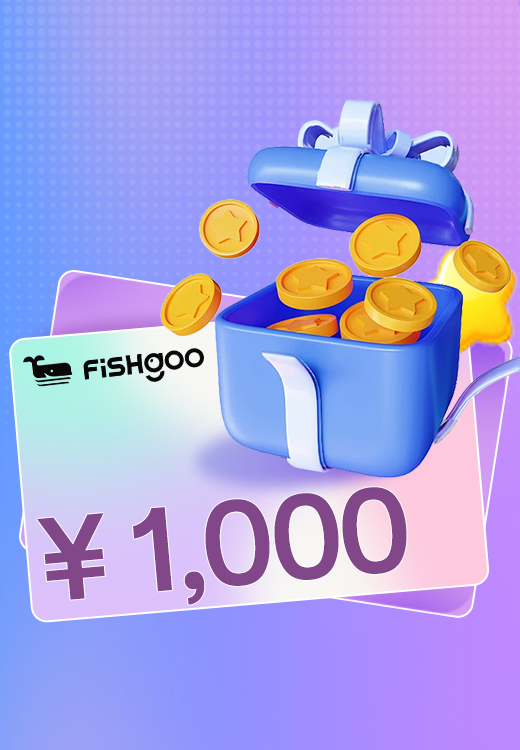I Tried Every Method to Find the Easiest Way to Translate and Order From Chinese Sites
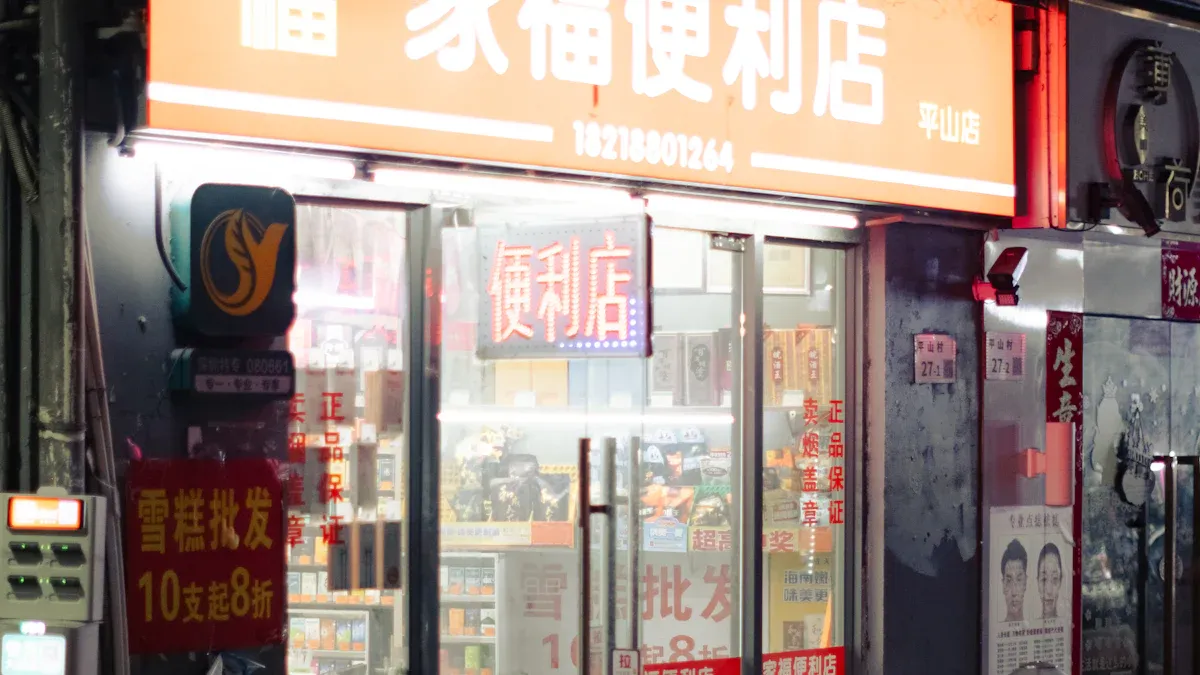
I wanted to find the easiest way to shop from a Chinese website, so I tried every way myself. Fishgoo made it easy to change pages to English and order fast. I liked how correct and simple it was. With the right tool, anyone can do this.
Key Takeaways
Fishgoo makes shopping on Chinese websites easier. It gives full English help. This makes it simple to read product details. It also helps with checkout steps.
Browser extensions and translation apps can help you shop better. They quickly change text and pictures into English. This helps you move around Chinese sites with confidence.
Always look at translations to make sure they are right. Use safe payment ways like PayPal to keep your money safe when buying from sellers in other countries.
Testing Methods
When I began, I wanted to find the easiest way to translate and order from a Chinese website. I tried many popular ways I found online. I used Fishgoo, browser extensions, translation apps, and some manual tricks. My goal was to see how each way worked on different websites and with different languages. I wanted to know if a tool could help someone who does not speak Chinese or other Asian languages.
Criteria for Easiest Way
I made some rules to keep my tests fair. I checked how well each way could turn a website into English or other languages. I looked to see if the translation made sense and matched the original page. I also noticed how easy each tool was to use. Did I have to click many buttons? Was it simple to find what I needed? I checked if the website let me switch between languages fast.
Here is a table that shows what I looked at:
Evaluation Criteria | Details |
|---|---|
Translation Accuracy | Did the translation make sense and match the original meaning? |
Ease of Use | Was it easy to navigate the website and use the translate features? |
Payment Options | Did the website offer payment methods that work in my country and in different languages? |
Shipping | Were shipping costs and times clear, and could I track my order in multiple languages? |
Sites and Products Used
I chose different websites for my tests. I used Taobao, JD, and 1688 because they are very popular in China. I tried to translate product pages, checkout screens, and customer service chats. I looked for things like clothes, electronics, and home goods. I wanted to see if the tools could work with different types of content on each site. This helped me find out which way was best for people who want to shop in different languages and on any website.
Challenges of Chinese Sites
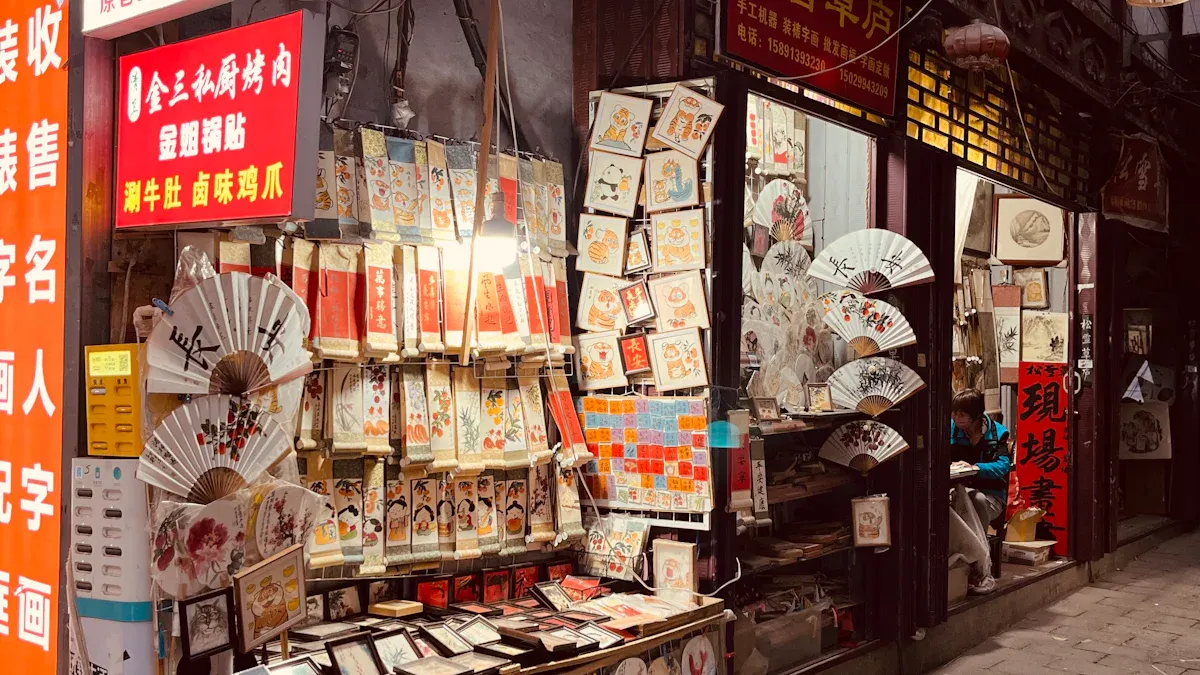
Language Barriers
Shopping on a chinese website can be confusing. When I tried to order, most pages were in chinese languages. Sometimes, I saw mandarin. Other times, there were different dialects. I could not understand product details or instructions. Many chinese sites do not let you change languages easily. I used translation tools, but they did not always help. Some mandarin words did not translate right. I got mixed up about what I was buying.
Here are some problems I had with chinese languages:
Menus and buttons stayed in mandarin, so it was hard to use.
Product descriptions used slang or cultural words I did not know.
Customer service chats were only in chinese languages, so I could not ask questions easily.
Notifications and alerts did not translate, so I missed important updates.
I saw that most shoppers want their own languages, and I hoped for better localization.
I found out that interpreters can help, but most people want shopping to be simple. Chinese languages have many dialects, which makes things even harder.
Language Barrier Type | Description |
|---|---|
The chinese language is very complex, and many dialects make it harder to understand. |
Payment and Shipping Issues
Ordering from chinese sites gave me more problems. Many sites wanted local payment methods, like Alipay or WeChat Pay, but I did not have them. I wanted to use my own card, but it did not always work. Shipping was also a problem. Some sellers only shipped inside China. International shipping cost more money. New shipping rules made prices go up, especially for small packages. Tariffs and extra fees made things cost more, so I had to think before buying.
The end of the de minimis exemption means imported goods cost more.
Universal Postal Union changes made shipping more expensive for small sellers.
I had to check if a seller could ship to my country before I ordered.
Tracking shipments was hard, especially when updates were in mandarin.
Payment and shipping problems showed me that global solutions are needed for cross-border shopping.
Browser Extensions to Translate a Website
When I wanted to change a Chinese website to English, I tried browser extensions first. These tools let me turn the whole website into English with one click. I wanted to see if they could help me shop without getting confused. Many people use browser extensions to make websites show more than one language. They are helpful for website translation.
Google Chrome Extension
I used the Google Chrome Extension to change Chinese to English. It was simple to use. I clicked "translate this page" and the words changed. This helped me read product details and menus. Sometimes, the translation was not perfect, but I could still shop. The extension made it easy to understand a website, even if I did not know Chinese. I liked that I could change the whole website in just a few seconds. This tool is good for people who want to see websites in different languages or need fast translation.
Microsoft Edge Translator
Then, I tried the Microsoft Edge Translator. It worked almost the same as Chrome. I could change Chinese to English with one button. The translation was quick and helped me read product pages. Both extensions made shopping on Chinese sites easier. They helped make websites feel more friendly for people who speak other languages. If you want to see websites in more than one language, browser extensions are a good choice.
Extension | Pros | Cons |
|---|---|---|
Google Translate | Easy to use, fast, works on many sites | Sometimes wrong language, popups, collects data |
Lingocloud | Accurate, one-click, good for business | Needs subscription, limited daily use |
GlotDojo | Customizable, fast, video subtitles | Cannot translate a whole website |
Mate Translate | Free version, customizable, can translate pages | Pro features cost money, manual selection needed |
Browser extensions helped me change Chinese websites to English fast. They made it easier to shop on these sites. If you want to shop or just look around, these tools can help you read and understand Chinese websites.
Translation Apps and Tools
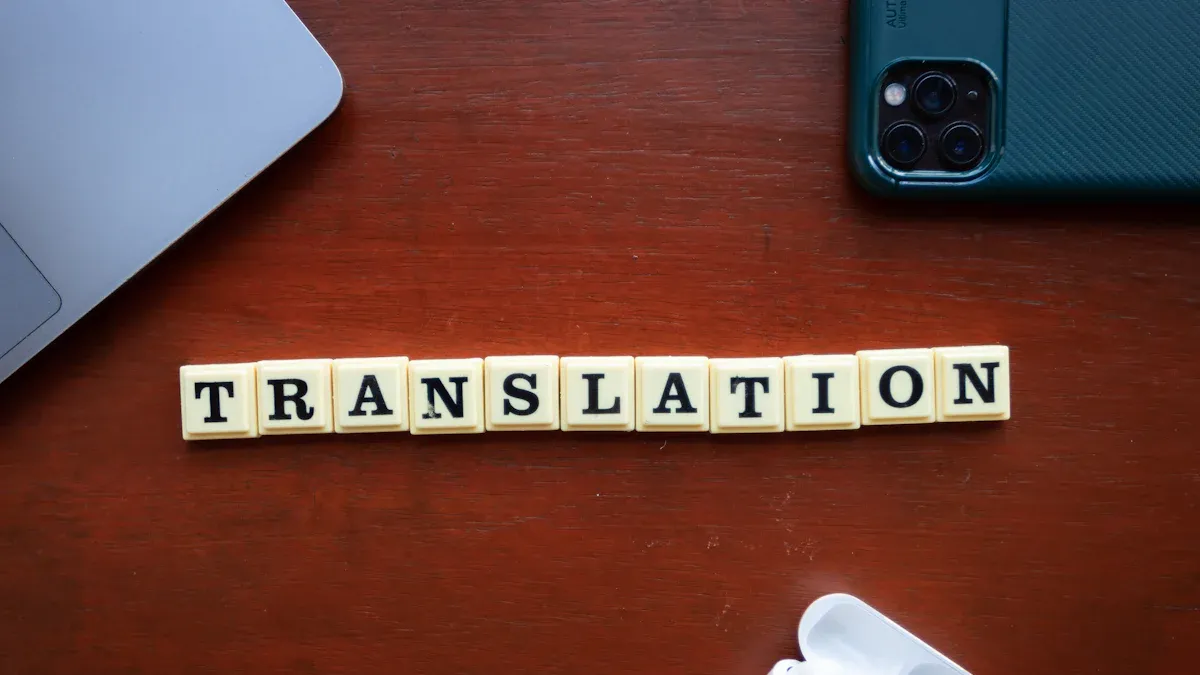
When I started shopping on Chinese sites, I tried many translation apps. I used my phone and computer to test them. I wanted to see if these apps could help me read product pages and reviews. Some apps worked better for text. Others were good for pictures or documents. The right app can really help when shopping on a Chinese website.
Google Translate App
I used the Google Translate app almost every day. It let me type, copy, or use my camera to translate Chinese. When I saw a label or menu in Chinese, I used the camera tool. The app showed me the English words right away. I could also translate documents or screenshots from websites. Google Translate supports over 100 languages, so it is very flexible. I even used voice translation to talk in customer service chats. Google Translate made shopping on Chinese websites much easier for me.
DeepL and Others
I also tried DeepL and other translation tools. DeepL gave me clear and natural translations for long product descriptions. Some apps let me translate text, images, or even whole websites. Many of these tools support many languages, so I could switch if I needed. Some apps had quick camera translation for product labels. Others let me upload documents and get a full translation fast.
Here’s a table showing what features I found most useful in translation apps for shopping on Chinese sites:
Feature | Description |
|---|---|
Document Translation | Helps translate product descriptions and manuals from Chinese sites. |
Text Translation | Quickly translates reviews and product details. |
Voice Translation | Makes it easy to talk to customer service in Chinese languages. |
Image Translation | Translates product labels and screenshots from a website. |
Website Translation | Lets me browse Chinese sites in my own language. |
Quick Camera Translation | Instantly translates by pointing the camera at Chinese text. |
Multi-language Support | Supports over 100 languages for a multilingual experience. |
I learned that translation apps and tools are very helpful. They make it easier to shop on Chinese websites. Shopping online feels less scary and more fun with these tools.
Manual Translation Methods
Sometimes, I just want to get a quick answer, so I use manual translation methods. These are the old-school ways—copying text from a Chinese website and pasting it into a tool like google translate. I remember the first time I tried this. I copied a product description from Taobao and pasted it into google translate. The words changed fast, but sometimes the meaning felt a little off. I had to guess what the seller really meant.
Copy-Paste Translation
When I shop online, I often see a block of Chinese text. I highlight it, copy it, and then paste it into google translate. This works for short sentences or product names. If I want to check reviews or shipping info, I do the same thing. It feels simple, but it gets slow when I have to translate a lot of text. Sometimes, I spend a long time copying and pasting each section. I noticed that manual translation can be slow, especially for big orders or long pages. Here’s what I found:
Manual translations are slow, usually only 300 to 500 words per hour.
Modern tools like google translate make things faster and more accurate.
Even with tools, I sometimes need to double-check tricky words.
Baidu and SYSTRAN
Besides google translate, I tried Baidu and SYSTRAN for translation. Baidu is popular in China, so it sometimes gives better results for slang or local words. SYSTRAN works well for business terms. Still, I have to copy and paste everything, which takes time. If I want to order many products, this method feels too slow. Translation tools help, but they are not perfect for shopping. I often need to review the translation to make sure I understand the details.
Tip: For simple shopping, copy-paste translation works. For big orders or lots of pages, I use faster tools like google translate.
The Easiest Way: Fishgoo One-Stop Service
How Fishgoo Works
I wanted a simple way to shop on a Chinese website. I tried Fishgoo and it was easy from start to finish. I did not need to know any Chinese languages. There were no confusing steps. Here is how I used Fishgoo to translate and order:
Find the Product
I searched for what I wanted on Taobao or 1688. Sometimes, I used Google Translate for keywords. I also uploaded a product photo to help find the item.Paste the Link
I copied the product link from the Chinese website. Then I pasted it into Fishgoo. Fishgoo quickly translated the page to English. I saw all the details, like price and color, in English.Check Product Details
If I had questions, I used Fishgoo’s chat or customer service. They helped me talk to the seller. I always got the right information. I never felt lost, even with hard words.Easy Checkout
Fishgoo made payment simple. I could pay with PayPal, Visa, MasterCard, or Alipay. I did not need a Chinese bank account. It felt like shopping on any other website.Warehouse and Shipping
After I paid, Fishgoo bought the product for me. The seller sent it to Fishgoo’s warehouse in China. Fishgoo checked the item and told me when it arrived. I picked how I wanted my package shipped—by air, sea, or express like FedEx or DHL.Track and Receive
I tracked my order on the Fishgoo website. When my package came, I was happy. I had used the easiest way to shop from a Chinese website.
Tip: Fishgoo can put many orders in one box to save on shipping. This helped me spend less money and made things easier.
Key Benefits
Fishgoo is the best choice for anyone who wants to translate and order from Chinese sites. These features made my shopping easy:
Full English Support
I always knew what each button did. The whole website was in English. I could shop without worry.Global Payment Options
Fishgoo took many payment methods. I used PayPal, but you can use Visa, MasterCard, or WeChat Pay. No need for a Chinese account.Clear Fees and Real-Time Exchange Rates
I always knew what I would pay. Fishgoo showed the real exchange rate. There were no hidden costs.Professional Customer Service
If I had a question, Fishgoo’s team answered fast. They helped me translate messages and fix problems with sellers.Quality Inspection and Package Consolidation
Fishgoo checked my items at the warehouse. If I ordered from different sellers, they put everything in one box. This made shipping cheaper and safer.Flexible Shipping Choices
I picked the shipping method that fit my budget and time. Fishgoo offered FedEx, DHL, and regular postal services.Curated Shopping Experience
Sometimes, I looked at Fishgoo’s Exquisite Mall for special finds. The website had cool products and influencer picks I could not find anywhere else.
Here’s a table that shows what makes Fishgoo the best for international buyers:
Unique Feature | Description |
|---|---|
English Interface | I could use the website in English without any confusion. |
Global Payment Support | Paid with PayPal, Visa, or MasterCard easily. |
Clear Fees | No hidden costs, just clear prices. |
Real-Time Exchange Rates | Saw exactly how much I spent in my own currency. |
Professional Customer Service | Got help fast whenever I needed it. |
Exquisite Mall | Found cool, curated products and influencer picks. |
Customized Sourcing Options | Asked for special items and Fishgoo found them for me. |
I tried many ways to translate and order from Chinese websites. Fishgoo was the easiest way by far. The platform helped with every step, from translation to payment to shipping. I never felt stuck or confused. If you want the best way to shop from Chinese sites, Fishgoo is my top pick.
Comparison of Translation and Ordering Methods
Pros and Cons
I tried many ways to translate and order from Chinese sites. Each way has good and bad points. Some tools are fast but not always right. Others are slow but more correct. Here is a table that shows what I learned:
Method | Strengths | Weaknesses |
|---|---|---|
Browser Extensions | Simple, quick, can change a website with one click | Misses some things, not always good for checkout |
Translation Apps | Works for words, pictures, and voice, good for many sites | Slow for big pages, lots of copying and pasting |
Manual Translation | Lets me check every word, works on any site | Very slow, hard for long pages or many items |
Machine Translation | Fast and cheap for lots of words | Misses culture, can sound strange |
Human Translation | Knows the meaning and culture, best for hard sites | Takes longer, costs more money |
Hybrid Approach | Mixes speed and being right, good for important sites | Still needs checking, can miss some culture |
Fishgoo One-Stop | Changes a website, easy to pay, ships anywhere | (I did not find any big problems) |
When I used browser extensions, I liked how fast I could see English. Translation apps helped me on my phone or with product labels. Manual translation was okay for small parts, but too slow for a whole site.
Best Use Cases
I learned each way is best for different things:
I use browser extensions when I want to see a website in English fast.
Translation apps help me on my phone or with product info.
Manual translation is good for short reviews or double-checking.
Fishgoo is best when I want to order, pay, and get things shipped to me.
Tip: If you want the easiest way to translate and order from Chinese sites, Fishgoo does everything for you.
Quick Tips for Ordering from Chinese Sites
Translation Accuracy
When I started shopping on a chinese website, I saw that checking translations is very important. Sometimes, the words sound strange or do not say what they really mean. Here is what I do to make sure I understand:
I use more than one tool to check translations, especially for product details.
I pick websites that change all pages, not just the home page. This means checkout, money, and reviews are easy to read.
If I see slang or special words, I ask customer service or use a translate app with a camera.
I check if the website works well on my phone. Many chinese sites are good for mobile.
If I am not sure about a translation, I chat with support. Good websites have help all day and night.
Tip: Do not trust the first translation you see. Always check again before you buy!
Safe Payment and Shipping
Paying and shipping can be hard when you order from a chinese website. I learned some ways to stay safe and not get surprised:
I use safe payment like PayPal or credit cards. These protect my money until my order comes. Some chinese sites have payment that holds your money until you get your package.
Before I pay, I check if the website shows shipping choices clearly. I like to see air or sea shipping, so I can pick how fast I get my package.
I always read about customs and import rules in my country. Sometimes, I ask the website or shipping company for help.
I track my package with the website’s tracking tool. If something is wrong, I talk to support right away.
If I buy something new or expensive, I order a sample first from the chinese seller.
Note: Being friendly with the website’s support team can help fix problems faster.
Fishgoo made it simple for me to translate and shop on any Chinese website. I always saw clear prices and got fast support. If you want a smooth experience, give Fishgoo a try. Here are my top tips for safe shopping:
Pick trusted platforms.
Check shipping times.
Ask questions if unsure.
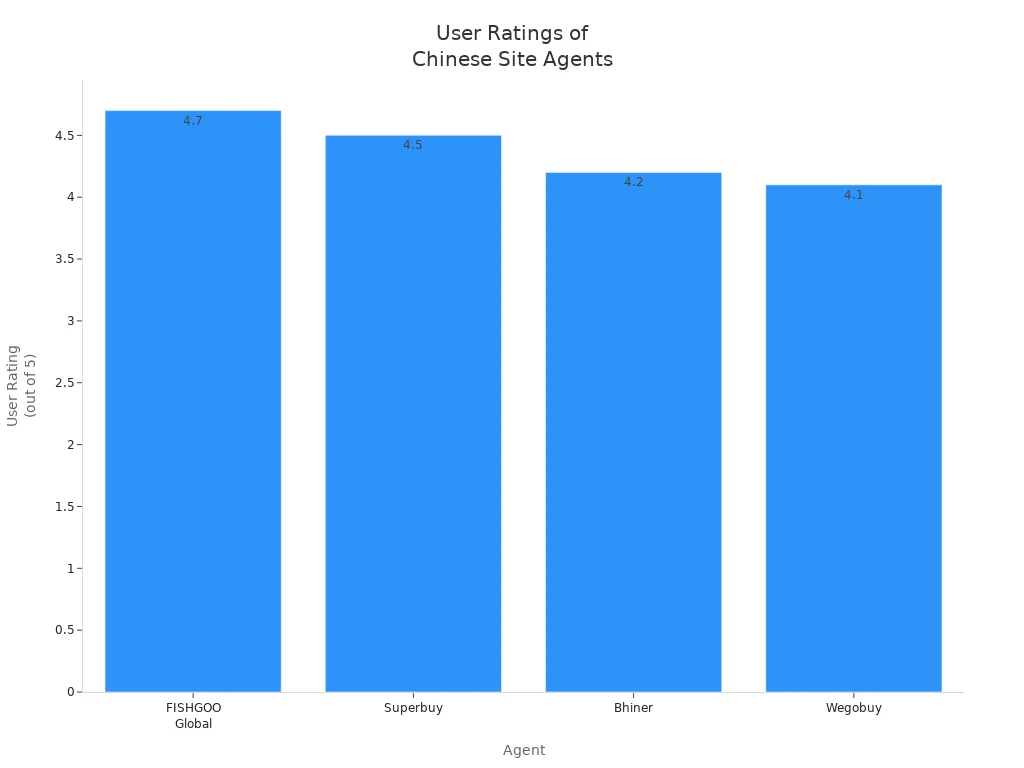
Have you tried shopping this way? Share your story or questions below!
FAQ
How do I translate a Chinese product page quickly?
I copy the product link and paste it into Fishgoo. The site shows the page in English right away. It saves me a lot of time.
Can I pay with my local credit card?
Yes, I use my Visa or MasterCard on Fishgoo. The checkout process feels just like any other online store I use.
What if I need help with my order?
I contact Fishgoo’s customer service. They answer fast and help me solve any problem. I always feel supported when I shop.
See Also
Streamlining Your Shopping Experience on Chinese Platforms
Ordering Chinese Electronics from Abroad Made Easy with Fishgoo
Safe and Efficient Online Shopping from China Explained
Understanding International Shipping for Chinese Online Purchases

